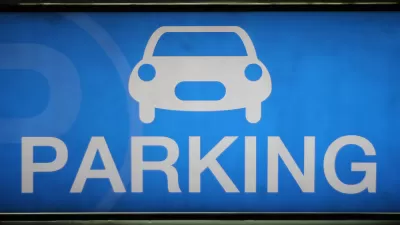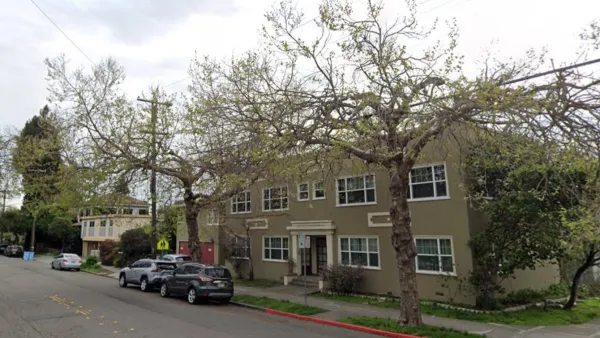A three-year pilot program of market-pricing for parking in the university town of Berkeley, California is already revealing surprising realities about parking demand in the city.
A post on the Systematic Failure blog details the result of a test of market pricing for parking in Berkeley—where the perception of parking shortages does not match the data about parking availability even in peak hours.
Here's how the post describes the goBerkeley experiment:
"The city received a 3-year Federal grant to test that hypothesis. The transportation department analyzed parking occupancy rates in three neighborhoods, continually adjusting parking hours and pricing based on demand. Price and time limits were set with a goal of always having 65-85% occupancy on each block. Where parking exceeded the 85% threshold, prices went up and time limits went down. Where parking occupancy dropped below the 65%, prices were reduced and time limits increased. Clear signage was installed to inform drivers their pricing options."
The articles shares infographics reporting the surprising results of a survey presented to the Berkeley City Council in December [pdf], including low demand for parking within two blocks of the University of California campus.
The article also notes the improvements left to be implemented for the goBerkeley program, including the automation of real-time data and payment processes.
FULL STORY: Some Surprising Results of a Market-Pricing Parking Experiment

Planetizen Federal Action Tracker
A weekly monitor of how Trump’s orders and actions are impacting planners and planning in America.

Chicago’s Ghost Rails
Just beneath the surface of the modern city lie the remnants of its expansive early 20th-century streetcar system.

San Antonio and Austin are Fusing Into one Massive Megaregion
The region spanning the two central Texas cities is growing fast, posing challenges for local infrastructure and water supplies.

Since Zion's Shuttles Went Electric “The Smog is Gone”
Visitors to Zion National Park can enjoy the canyon via the nation’s first fully electric park shuttle system.

Trump Distributing DOT Safety Funds at 1/10 Rate of Biden
Funds for Safe Streets and other transportation safety and equity programs are being held up by administrative reviews and conflicts with the Trump administration’s priorities.

German Cities Subsidize Taxis for Women Amid Wave of Violence
Free or low-cost taxi rides can help women navigate cities more safely, but critics say the programs don't address the root causes of violence against women.
Urban Design for Planners 1: Software Tools
This six-course series explores essential urban design concepts using open source software and equips planners with the tools they need to participate fully in the urban design process.
Planning for Universal Design
Learn the tools for implementing Universal Design in planning regulations.
planning NEXT
Appalachian Highlands Housing Partners
Mpact (founded as Rail~Volution)
City of Camden Redevelopment Agency
City of Astoria
City of Portland
City of Laramie





























